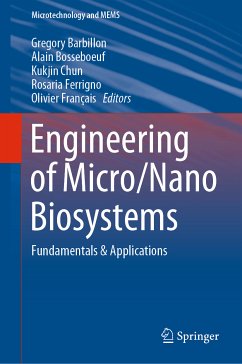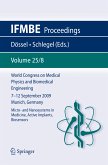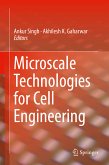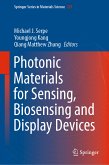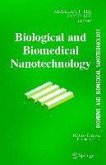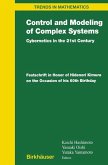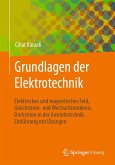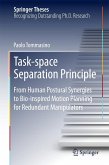Engineering of Micro/Nano Biosystems (eBook, PDF)
Fundamentals & Applications
Redaktion: Barbillon, Gregory; Français, Olivier; Ferrigno, Rosaria; Chun, Kukjin; Bosseboeuf, Alain
120,95 €
inkl. MwSt.
Sofort per Download lieferbar

60 °P sammeln
Engineering of Micro/Nano Biosystems (eBook, PDF)
Fundamentals & Applications
Redaktion: Barbillon, Gregory; Français, Olivier; Ferrigno, Rosaria; Chun, Kukjin; Bosseboeuf, Alain
- Format: PDF
- Merkliste
- Auf die Merkliste
- Bewerten Bewerten
- Teilen
- Produkt teilen
- Produkterinnerung
- Produkterinnerung

Bitte loggen Sie sich zunächst in Ihr Kundenkonto ein oder registrieren Sie sich bei
bücher.de, um das eBook-Abo tolino select nutzen zu können.
Hier können Sie sich einloggen
Hier können Sie sich einloggen
Sie sind bereits eingeloggt. Klicken Sie auf 2. tolino select Abo, um fortzufahren.

Bitte loggen Sie sich zunächst in Ihr Kundenkonto ein oder registrieren Sie sich bei bücher.de, um das eBook-Abo tolino select nutzen zu können.
- Geräte: PC
- ohne Kopierschutz
- eBook Hilfe
- Größe: 16.12MB
Andere Kunden interessierten sich auch für
![World Congress on Medical Physics and Biomedical Engineering September 7 - 12, 2009 Munich, Germany (eBook, PDF) World Congress on Medical Physics and Biomedical Engineering September 7 - 12, 2009 Munich, Germany (eBook, PDF)]() World Congress on Medical Physics and Biomedical Engineering September 7 - 12, 2009 Munich, Germany (eBook, PDF)160,95 €
World Congress on Medical Physics and Biomedical Engineering September 7 - 12, 2009 Munich, Germany (eBook, PDF)160,95 €![Microscale Technologies for Cell Engineering (eBook, PDF) Microscale Technologies for Cell Engineering (eBook, PDF)]() Microscale Technologies for Cell Engineering (eBook, PDF)72,95 €
Microscale Technologies for Cell Engineering (eBook, PDF)72,95 €![Photonic Materials for Sensing, Biosensing and Display Devices (eBook, PDF) Photonic Materials for Sensing, Biosensing and Display Devices (eBook, PDF)]() Photonic Materials for Sensing, Biosensing and Display Devices (eBook, PDF)72,95 €
Photonic Materials for Sensing, Biosensing and Display Devices (eBook, PDF)72,95 €![BioMEMS and Biomedical Nanotechnology (eBook, PDF) BioMEMS and Biomedical Nanotechnology (eBook, PDF)]() BioMEMS and Biomedical Nanotechnology (eBook, PDF)160,95 €
BioMEMS and Biomedical Nanotechnology (eBook, PDF)160,95 €![Control and Modeling of Complex Systems (eBook, PDF) Control and Modeling of Complex Systems (eBook, PDF)]() Control and Modeling of Complex Systems (eBook, PDF)72,95 €
Control and Modeling of Complex Systems (eBook, PDF)72,95 €![Grundlagen der Elektrotechnik (eBook, PDF) Grundlagen der Elektrotechnik (eBook, PDF)]() Cihat KaraaliGrundlagen der Elektrotechnik (eBook, PDF)29,99 €
Cihat KaraaliGrundlagen der Elektrotechnik (eBook, PDF)29,99 €![Task-space Separation Principle (eBook, PDF) Task-space Separation Principle (eBook, PDF)]() Paolo TommasinoTask-space Separation Principle (eBook, PDF)72,95 €
Paolo TommasinoTask-space Separation Principle (eBook, PDF)72,95 €-
-
-
Produktdetails
- Verlag: Springer Nature Singapore
- Seitenzahl: 368
- Erscheinungstermin: 2. August 2019
- Englisch
- ISBN-13: 9789811365492
- Artikelnr.: 57411386
Dieser Download kann aus rechtlichen Gründen nur mit Rechnungsadresse in A, B, BG, CY, CZ, D, DK, EW, E, FIN, F, GR, HR, H, IRL, I, LT, L, LR, M, NL, PL, P, R, S, SLO, SK ausgeliefert werden.
- Herstellerkennzeichnung Die Herstellerinformationen sind derzeit nicht verfügbar.
Dr. HDR. Grégory Barbillon completed his PhD in Physics (2007) with greatest distinction at the University of Technology of Troyes (France). Then, he obtained his Habilitation (HDR) in Physics (2013) at the University of Paris Sud (Orsay, France). From September 2017, he is Professor of Physics at the Faculty of Engineering "EPF - Ecole d'Ingénieurs" (Sceaux, France). His research interests are focused on Plasmonics, Nano-Optics, Non-Linear Optics, Nanophotonics, Condensed Matter Physics, Optical Sensing, Biosensing, Nanotechnology, Surface Enhanced Spectroscopies, Sum Frequency Generation Spectroscopy, Materials Chemistry, Physical Chemistry, Fluorescence. Dr. Alain Bosseboeuf received in 1980 a master degree in microelectronics from INPG and a telecommunication engineer diploma from ENSTBr and in 1981 a master degree in Solid State Physics from University Paris 6. He received in 1989 the state PhD degree in Physics from University Paris Sud (Orsay). Since1983 he works as a CNRS full-time researcher first in Institut d'Electronique Fondamentale (IEF) and since june 2016 in Centre for Nanoscience and nanotechnology (C2N) a joint research institute of CNRS and University Paris-Sud. He worked for 10 years on thin film deposition and characterization and then in the field of micro/nanosystems. He led for 10 years the research group "NanoBio and Micro/nanosystems" of IEF. He belonged to various expert, steering and conference committees in the field of microsystems. Since November 2005, he is coordinating the international research network NAMIS (Nano and Microsystems) involving 12 partners from 10 countries and 3 continents. His current interests include thin films, MEMS and packaging technologies, and the development of associated characterisation tools. Prof. Kukjin Chun received the B.S.degree in Electronics Engineering from Seoul National University in 1977 and the M.S. and Ph.D. degrees in Electrical Engineering from the University of Michigan in 1981 and 1986, respectively. He was an Assistant Professor in the Department of Electrical and Computer Engineering at Washington State University from 1986 to 1989. He joined the faculty of Seoul National University in 1989, where he is currently a Professor in the School of Electrical Engineering. He is a senior member of IEEE and a life member of IEEK. He has been a director of the Center for Advanced Transceiver System since 2000, which develops RF front-end solution for next-generation wireless communication systems. His research interests include integrated sensors, intelligent microsystems, and MEMS processing technologies. Prof. Rosaria Ferrigno received her PhD in Electrochemistry (1998) from the Swiss Federal Institute of Lausanne. She joined the faculty of University of Lyon in 2003, where she is currently Professor in the Electrical Engineering Department. Her research interests include Lab-on-a-Chip, Point-of-Care devices and microfluidics science with the main target to develop new in-vitro diagnostic devices. Prof. Français Olivier received his PhD in applied physics (1998) from ENS- Cachan (France). He joined ESIEE-Paris (Marne la Vallée, France) from 1998 to 2004 to work on MEMS devices. In 2004, he had been recruited as an Assistant Professor at CNAM (Paris, France) and achieved projects on resonant sensors and microfluidics. In 2009, he joined ENS-Cachan to develop research and teaching around Microfluidics and BioMEMS. He focused his activity around cell biochips and biomimetic devices. He became specialised on study of interaction between electric fields and biological cells. In 2016, he got a full professor position at ESIEE-Paris engineering school in the biotechnology department. He is in charge for the development of microfluidics and its application towards biological applications.
Chapter 1. Introduction.- Chapter 2. Basics of micro/nano fluidics and biology.- Chapter 3. Micro/nano Fabrication and packaging technologies for biosystems.- Chapter 4. Mechanics for fluidics and bio devices.- Chapter 5. Optics and fluidics.- Chapter 6 Electricity for fluidics and biodevices.- Chapter 7. Magnetophoresis in bio-devices.- Chapter 8 conclusion.
Chapter 1. Introduction.- Chapter 2. Basics of micro/nano fluidics and biology.- Chapter 3. Micro/nano Fabrication and packaging technologies for biosystems.- Chapter 4. Mechanics for fluidics and bio devices.- Chapter 5. Optics and fluidics.- Chapter 6 Electricity for fluidics and biodevices.- Chapter 7. Magnetophoresis in bio-devices.- Chapter 8 conclusion.
